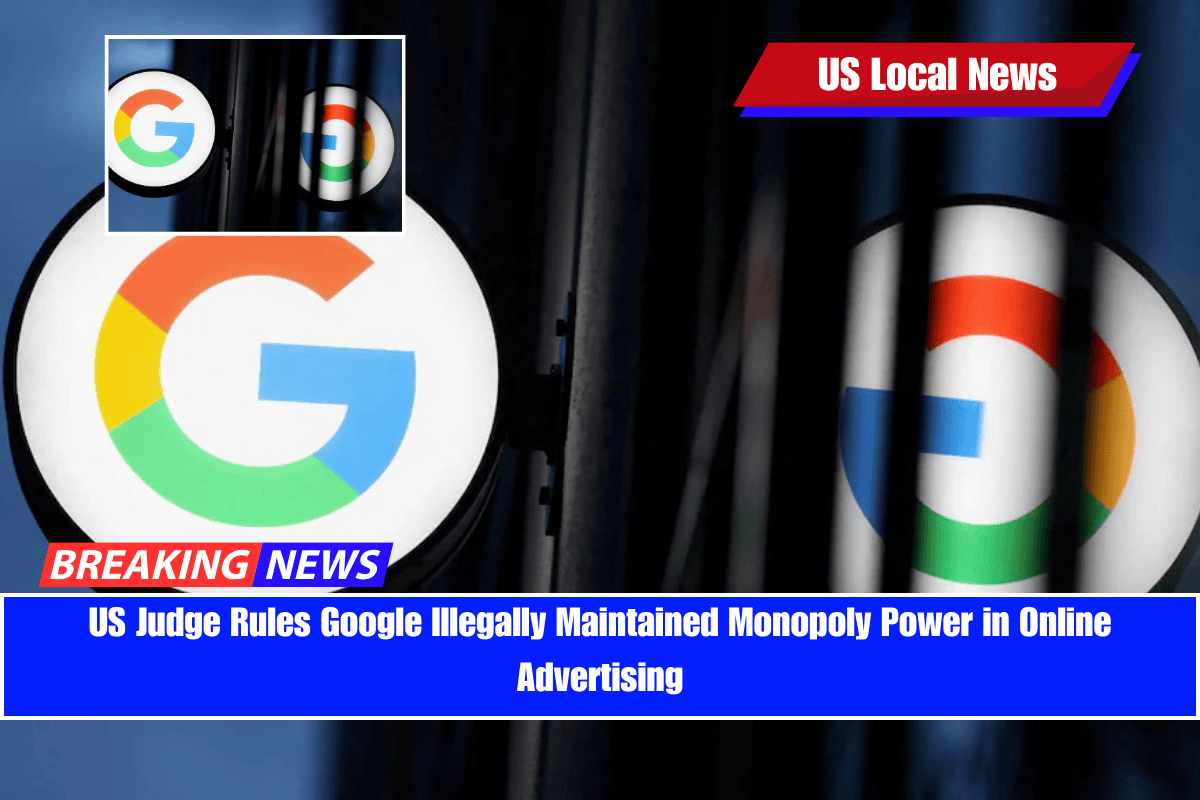In a major court ruling, Judge Leonie Brinkema has found that Google violated U.S. antitrust laws by maintaining monopoly power in online advertising, harming publishers, competition, and consumers. The lawsuit was brought by the U.S. Department of Justice and 17 states, and focuses on how Google dominates the online ad market.
The case centers around Google’s control over publisher ad servers and ad exchanges, which are systems used to manage and sell digital ads on websites.
Google Found Guilty of Anticompetitive Conduct
In her ruling, Judge Brinkema said:
“Plaintiffs have proven that Google has willfully engaged in a series of anticompetitive acts.”
The court specifically ruled that Google broke the Sherman Antitrust Act by illegally maintaining its dominance in:
- The publisher ad server market
- The ad exchange market for open-web display advertising
Google’s conduct, the court said, hurt other businesses, including online publishers, and also affected consumers who rely on the internet for information.
What Did Google Do Wrong?
According to the judge, Google forced publishers to use both its ad server and its ad exchange, creating an unfair tie between the two. This limited competition, making it harder for other companies to compete and leaving publishers with fewer choices.
For over a decade, Google created contracts and technologies that locked customers into its ecosystem, the judge said. These moves protected and strengthened its monopoly.
The ruling also noted that Google:
- Imposed harmful policies on its publisher customers
- Removed product features that could have helped its competitors
- Did not preserve internal communications, though the judge said no penalty was necessary because the court had enough evidence to make a ruling
DOJ May Push for a Breakup
The U.S. Department of Justice (DOJ) is now pushing for strong legal remedies. One possible option is forcing Google to sell off parts of its advertising business, especially those that dominate the online ad space.
This would be a huge move, as Google’s ad technology generates billions in revenue and has long been criticised by news publishers, who say tech giants have taken over the ad market and left journalism struggling to survive.
What Was Not Considered Anticompetitive?
While the court ruled against Google on many points, it also said that Google’s past acquisitions, including DoubleClick and Admeld, were not illegal on their own. Even though those deals helped Google grow, they were not enough to prove monopoly behavior without other anticompetitive actions.
Google’s Defence: “It’s Just Innovation”
Google’s lawyers argued that the company did not break any laws, and said it was simply responding to competition by improving its technology.
“Google’s conduct is a story of innovation in response to competition,” said Google attorney Karen Dunn.
However, the judge disagreed, ruling that the company’s actions went beyond innovation and blocked fair competition.











Leave a Reply